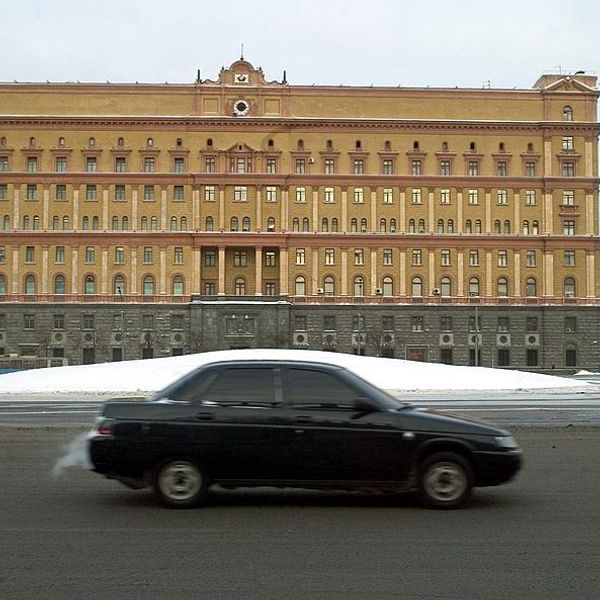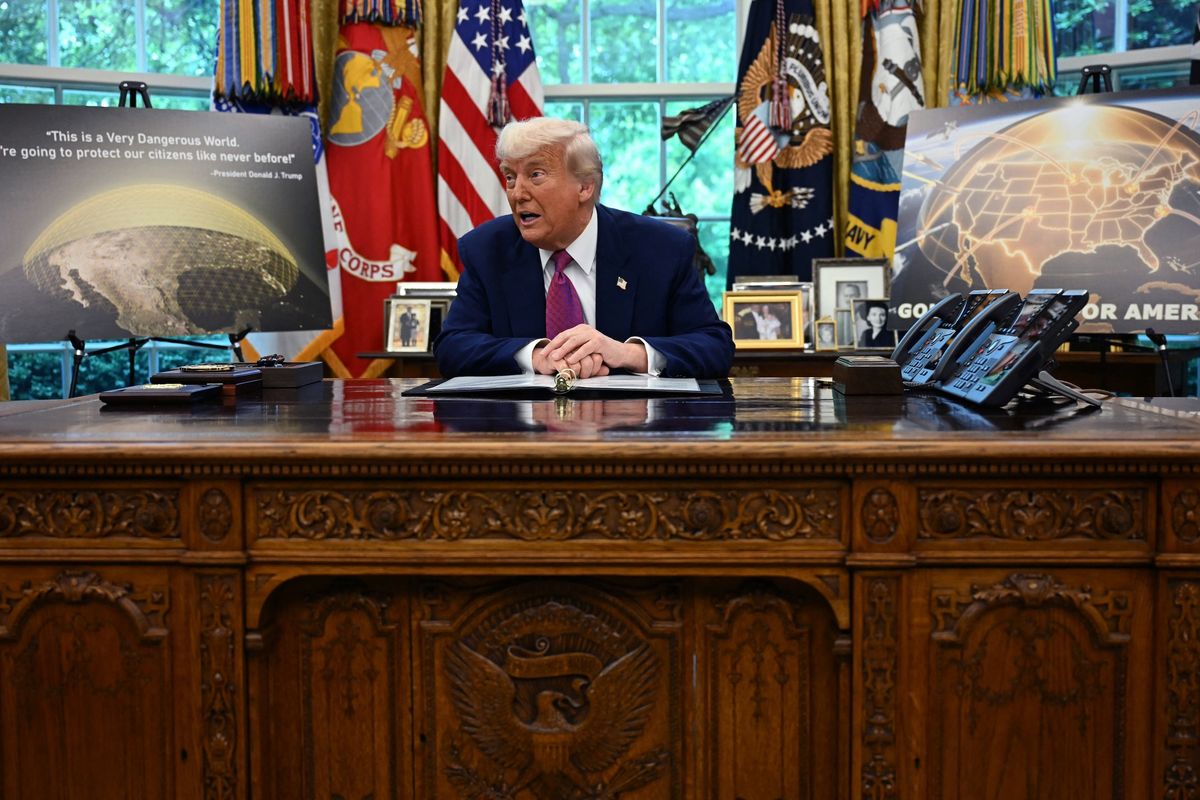Vice President Mike Pence put a little rocket fuel behind plans to create a new Space Force on Tuesday by announcing that President Donald Trump has directed the Pentagon to create a U.S. Space Command. Speaking at the Kennedy Space Center in Florida, Pence said that the new Command will be led by a four-star General and will bring together some 18,000 military and civilian personnel to focus on the final frontier. The next step, which requires Congressional approval, would be the creation of an actual Space Force, which would officially become an additional branch of the U.S. Armed Services.
Cipher Brief Expert and former Deputy Commander of U.S. Cyber Command, Lt. General Kevin McLaughlin (Ret.) recently testified before the National Space Council in strong support of a Space Force. TCB asked him to explain why he thinks it’s a great idea.
The Trump Administration is still putting the final touches on a detailed specific proposal to create a new Space Force, but that effort took a significant step forward today with the formal announcement that President Trump has directed the standup of United States Space Command as a full functional combatant command. This is important, because threats to our space capabilities are not on the horizon, but upon us now. We should move quickly to discuss and decide how to best implement a military space service and mitigate threats to American vital interests in space.
My perspective on this issue goes back to January 2001, and the Rumsfeld Space Commission. I served on the Commission staff and have first-hand knowledge of what was recommended and why. The unanimous and bi-partisan report provided by the Commission became the most comprehensive look ever at this matter and I fully support the five unanimous conclusions, still relevant today.
First, U.S. dependence on space is significant and increasing, as is the vulnerability that it creates. U.S. national security interests in space should be a top priority.
Second, the government is not focused enough to meet the needs of the 21st century in space. The Commission made sweeping recommendations aimed at creating greater effectiveness, as well as assigning clear responsibility and accountability. The most significant of their recommendations included a major internal Air Force realignment aimed at creating independent structures and processes for core space functions such as personnel management and policy; financial management; research and development; and the planning, programming and acquisition of space systems.
Third, the Commission recognized that the relationship between the Secretary of Defense and the Director of Central Intelligence was, and is, critical to the development and deployment of the space capabilities in war and crisis, but also in peace.
Fourth, given the virtual certainty that we will see conflict in space, the U.S. must develop the means to both deter and defend against hostile acts.
Finally, the U.S. Government needs to expand and deepen the pool of talent in science, engineering and space operations that the nation will need in the future.
In the years following the Space Commission’s recommendations, bureaucratic resistance, a lack of oversight, and poor follow through prevented the successful implementation of most of the Space Commission’s recommendations. As a result, we missed a generational opportunity to address our space challenges before they became urgent.
There are steps we need to take now to avoid another missed opportunity. They require Presidential focus, but not at the expense of building bi-partisan consensus on the Hill; don’t be distracted by issues not central to creating an independent space service; focus on rapid results by making a single senior space leader responsible and accountable; provide that leader the authority, autonomy, and resources to do the job; and don’t allow costs to be mis-represented or over-inflated.
I support a Space Force separate from, and outside of, the U.S. Air Force, but acknowledge a more efficient and cheaper path might be a Space Corps within the Department of the Air Force. Like the Marine Corps, it would still be a separate branch of the military with its own four-star service chief. Both options should be on the table as we move forward.
It is worth noting that today’s decision to create United States Space Command, while a needed step, falls well short of solving the shortfalls that a Space Force will address. A combatant command, even with some additional authorities, is primarily a joint organization that executes military operations utilizing forces presented to them by the military services. We still need a Space Force to organize, train, and equip the forces that United States Space Command will employ. In a nutshell, the Space Force will create the people, the units, and the space capabilities that will then be presented to United States Space Command for day-to-day operations.
This is a complex issue, with many opinions and options to be considered. But we should not cheapen the argument or belittle the careful study and sober conclusions of bi-partisan groups like the Space Commission. It is disingenuous to reduce the seriousness of this issue to tired arguments such as it’s just a whim of the President; about rearranging deck chairs for the sake of reorganization; creating an organization that has no defined mission; or building an unnecessary and expensive bureaucracy that adds no value. I heard many of the same phrases bantered about in 2001. This serious discussion is about whether we need a purpose-built military service whose raison d’être is to defend the United States in the space domain. A domain governed by physical laws and principles so different from air, land, and sea that it requires a different service. A service solely dedicated to current and future space missions defined by our civilian and military leadership via strategy, policy, and orders; to creating a culture of military professionals to directly influence the development of systems and doctrine needed to defend against the threats of today and tomorrow; and to applying all of its intellectual energy and resources towards that core mission. In my considered opinion, the question should not be whether such a step should be taken, but how we create an independent space service with the utmost speed and a singular focus. Given the seriousness of the threat, we may already be too late.
Lt. Gen. Kevin McLaughlin (Ret.) is a national security expert with The Cipher Brief and spent the majority of his 34-year Air Force career in a variety of space assignments that included serving as the CENTCOM Director of Space Forces assigned to the Middle East, the Director of the Joint Operationally Responsive Space Office, the Vice Commander of the U.S. Air Force Warfare Center, the Deputy Director of Global Operations at U.S. Strategic Command (responsible for how space capabilities are employed in support of STRATCOM and Combatant Command operations) and the HQ Air Force Director of Space Operations. McLaughlin was the only military staff member on the Rumsfeld Space Commission in 1990-1991 before he moved to the Pentagon to become the special assistant to the Deputy Secretary of Defense for Space Commission Implementation.















